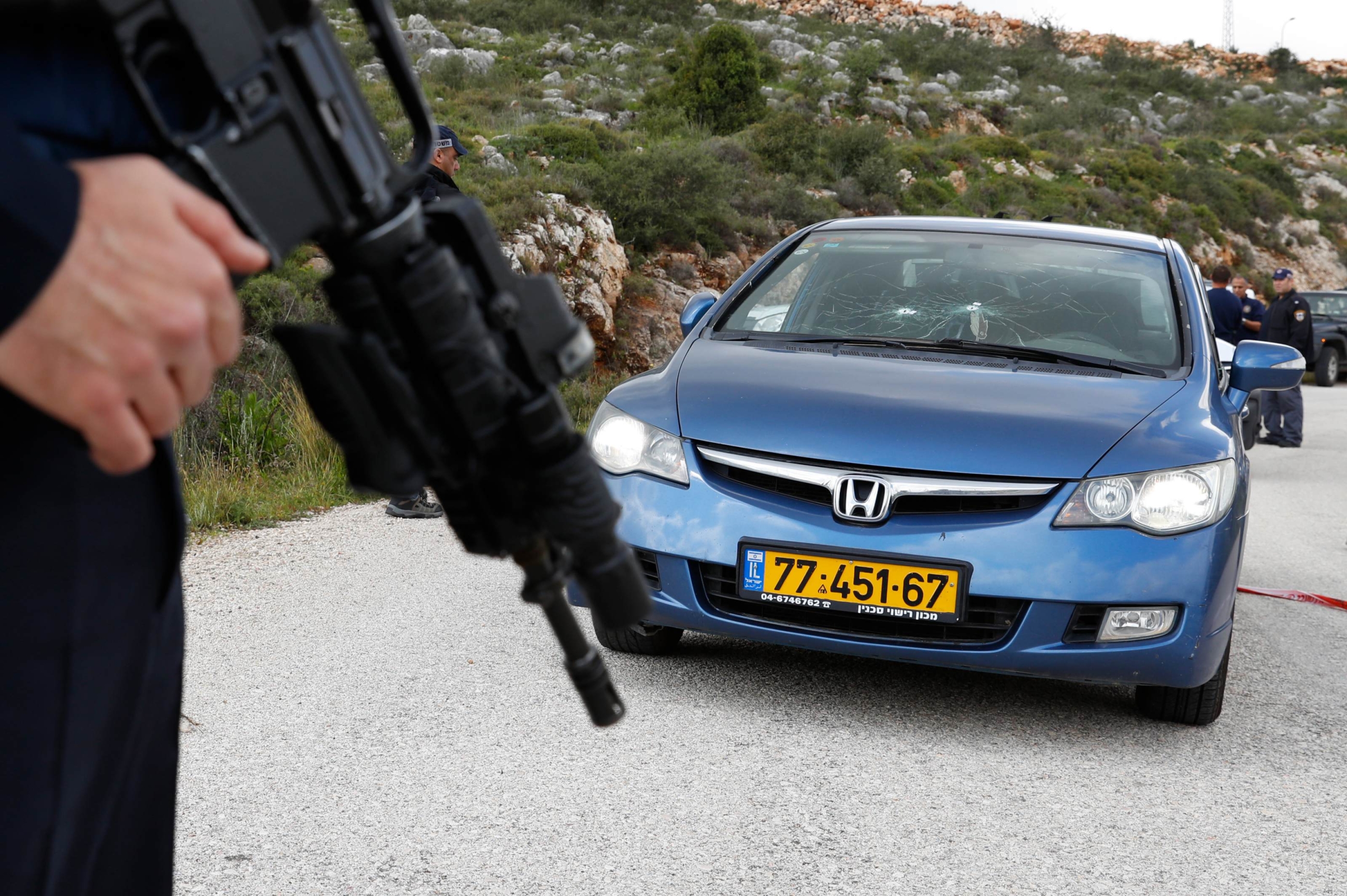Second Israeli dies after northern West Bank attack

An Israeli man who was wounded in a stabbing and shooting attack in the occupied West Bank on Sunday has died, raising the death toll to two.
Rabbi Ahiad Ettinger, 47, who is survived by his wife and 12 children, died from his injuries on Monday.
An Israeli soldier was killed in the attack on Sunday, as the army closed off the area in a search for the suspected assailant.
Israeli army spokesman Jonathan Conricus told the AFP news agency on Sunday that an assailant attacked a soldier with a knife near the Ariel junction, located near the illegal Israeli settlement of the same name in the Salfit district of the northern West Bank.
Conricus said the attacker then seized the soldier's weapon and fired towards three cars, before using one of the vehicles to drive towards a nearby junction, where he opened fire and on at least one other soldier.
Stay informed with MEE's newsletters
Sign up to get the latest alerts, insights and analysis, starting with Turkey Unpacked
"A manhunt is ongoing," Conricus said, after the assailant was believed to have fled towards the Palestinian village of Bruqin.
The army later identified the killed soldier as Gal Keidan, 19.
Another soldier was severely wounded from gunfire, the army and Israeli officials said.
Israeli raids
Describing the situation in the Salfit district as "really tense and stressful", Palestinian residents told Middle East Eye on Sunday that Israeli forces were raiding Bruqin and had installed checkpoints and roadblocks leading to neighbouring villages and the cities of Qalqiliya, Nablus and Ramallah.
Ghassan Najjar, a 28-year-old Palestinian activist from the area, said that residents of nearby Israeli settlements - which are all illegal under international law - were violently targeting neighbouring Palestinian villages in the wake of the attack.
Najjar said settlers from Yitzhar - a community infamous for its radicalised "hilltop youth" - had attacked the village of Asira al-Qibliya.
The settlers threw stones at Palestinians and their homes, Najjar added, while Israeli soldiers stood by, firing tear gas and rubber-coated bullets at Palestinians who tried to defend themselves.
The activist added that settlers were also throwing rocks at vehicles with Palestinian plates driving on roads near settlements in the area.
'The settlers don’t need an excuse to attack us'
In October, 48-year-old Palestinian Aisha al-Rabi was killed when Israeli teenagers from the settlement of Rechalim - also located near Ariel - threw rocks at her car, fatally hitting her in the head.
"The settlers don’t need an excuse to attack us, but in cases like today, they use it to become more aggressive," Najjar told MEE.
"When there is an attack on an Israeli, they use it as an excuse for 'revenge' to attack us more in an even more violent way -but in general, the settlers terrorise us every day.
"People are really scared that things will escalate overnight."
According to the UN Office for the Coordination of Humanitarian Affairs, one other Israeli was killed by a Palestinian this year as of 11 March, while 24 Palestinians were killed by Israeli forces during the same time frame.
Sensitive time
The attack comes at a sensitive time ahead of Israel's 9 April elections, with right-wing Prime Minister Benjamin Netanyahu vowing to apprehend the "terrorists" behind it.
Hamas, the de facto ruling movement in the besieged Gaza Strip, welcomed the attack, but did not claim responsibility for it.
It attributed the impulse behind the attack on recent Israeli moves to reshutter a prayer hall in the Al-Aqsa mosque compound in annexed East Jerusalem.
Akram al-Waara contributed reporting from the West Bank.
Middle East Eye delivers independent and unrivalled coverage and analysis of the Middle East, North Africa and beyond. To learn more about republishing this content and the associated fees, please fill out this form. More about MEE can be found here.




